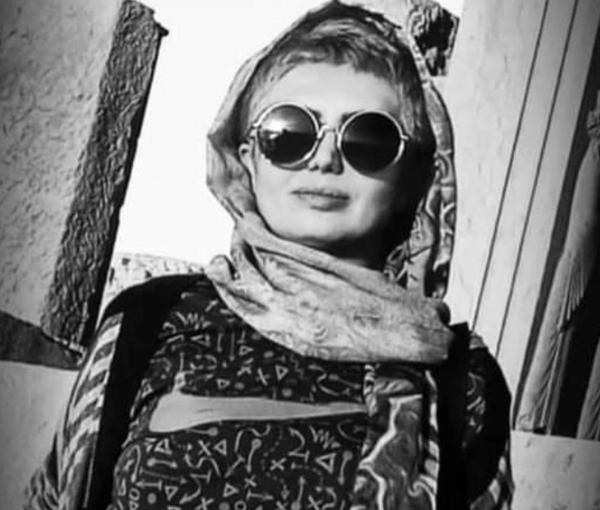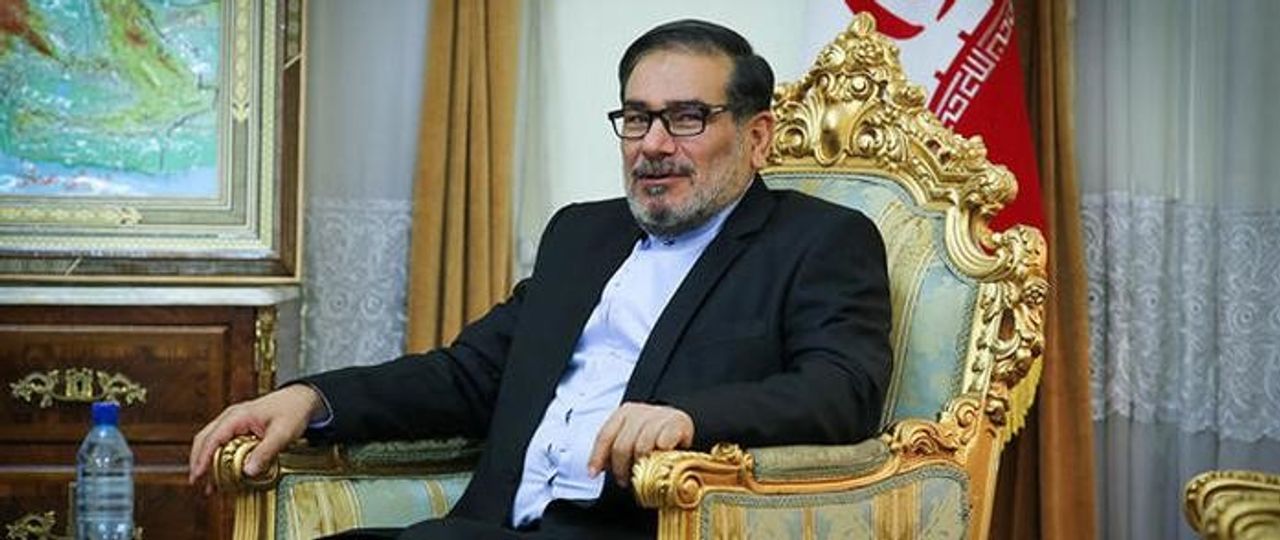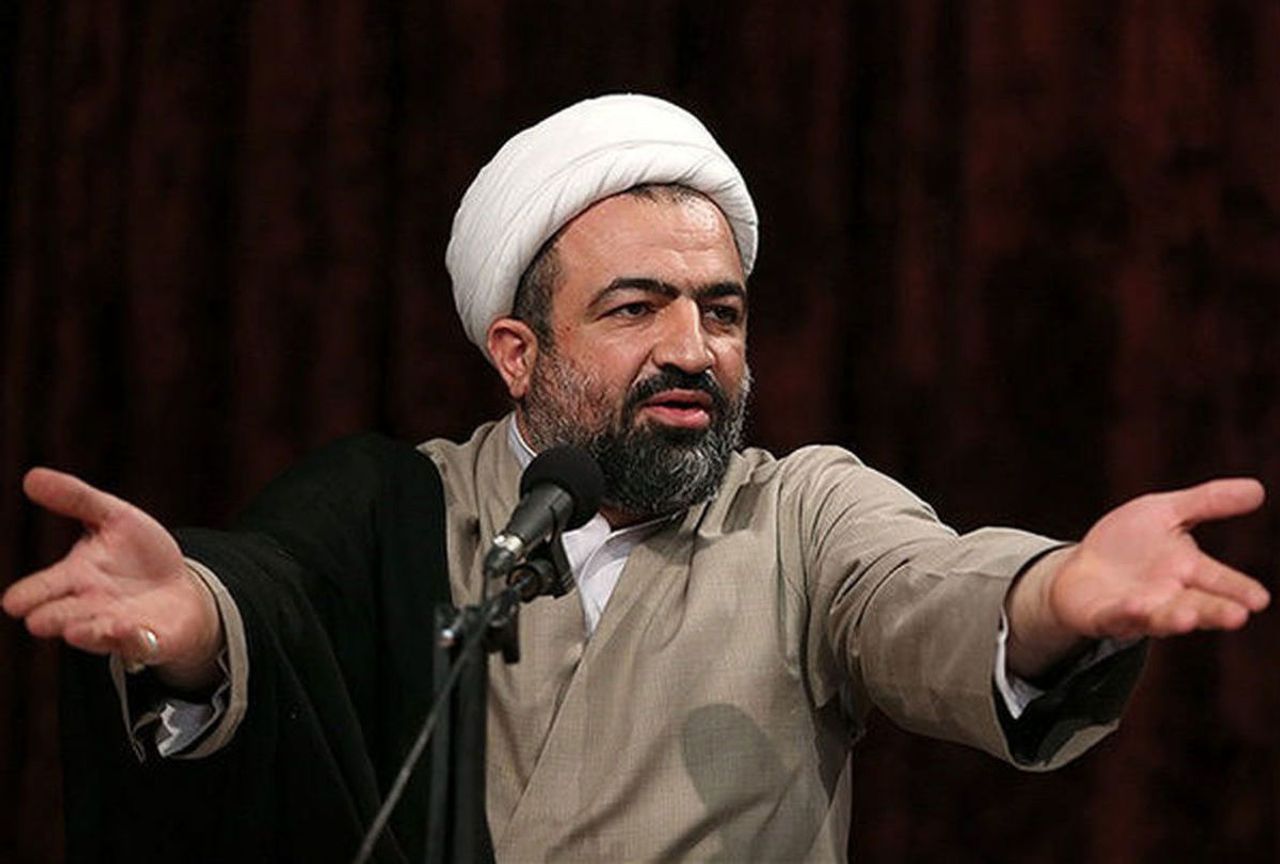Taraneh Alidoosti: Top Iranian actor vows she'll stay, 'pay any price' for rights
Taraneh Alidoosti said she planned to stop working and instead support the families of those killed or arrested in the crackdown in Iran.
The New Arab Staff & Agencies
06 November, 2022
Taraneh Alidoosti is well known to international audiences as a regular star in films by Oscar-winning director Asghar Farhadi
The New Arab Staff & Agencies
06 November, 2022

Taraneh Alidoosti is well known to international audiences as a regular star in films by Oscar-winning director Asghar Farhadi
[LOIC VENANCE/AFP/Getty-archive]
One of the best-known actors remaining in Iran on Sunday strongly backed the protest movement that has rocked the country, vowing to stay in her homeland and pay "any price" for her rights.
Taraneh Alidoosti, well known to international audiences as a regular star in films by Oscar-winning director Asghar Farhadi, said she planned to stop working and instead support the families of those killed or arrested in the crackdown.
"I am the one who stays here and I have no intention of leaving," Alidoosti, 38, wrote in a post on Instagram amid a crackdown that has seen several prominent cultural figures arrested.
She denied having any passport other than an Iranian one or any residence abroad.
"I will stay, I will halt working. I will stand by the families of prisoners and those killed. I will be their advocate," she said.
"I will fight for my home. I will pay any price to stand up for my rights, and most importantly, I believe in what we are building together today."
As a hashtag, she used the protest movement's main slogan: "Woman. Life. Freedom."
Alidoosti is known as a forthright defender of women's rights and wider human rights in Iran.
When major protests rocked the country in November 2019, she declared that Iranians were "millions of captives" rather than citizens.
Her best known role was in Farhadi's film The Salesman, which won best foreign-language film at the Oscars in 2017.
But she has been a prominent presence on the Iranian cinema scene since her teens and also starred in the recent acclaimed film by director Saeed Roustayi Leila's Brothers which was shown at this year's Cannes Festival.
Iranian cinema figures were under pressure even before the start of the now seven-week-old protest movement sparked by the death of 22-year-old Kurdish Iranian woman Mahsa Amini.
Amini's Kurdish first name can be spelt "Jina" or "Zhina".
Prize-winning directors Mohammad Rasoulof and Jafar Panahi remain in detention after they were arrested earlier this year.
One of the best-known actors remaining in Iran on Sunday strongly backed the protest movement that has rocked the country, vowing to stay in her homeland and pay "any price" for her rights.
Taraneh Alidoosti, well known to international audiences as a regular star in films by Oscar-winning director Asghar Farhadi, said she planned to stop working and instead support the families of those killed or arrested in the crackdown.
"I am the one who stays here and I have no intention of leaving," Alidoosti, 38, wrote in a post on Instagram amid a crackdown that has seen several prominent cultural figures arrested.
She denied having any passport other than an Iranian one or any residence abroad.
"I will stay, I will halt working. I will stand by the families of prisoners and those killed. I will be their advocate," she said.
"I will fight for my home. I will pay any price to stand up for my rights, and most importantly, I believe in what we are building together today."
As a hashtag, she used the protest movement's main slogan: "Woman. Life. Freedom."
Alidoosti is known as a forthright defender of women's rights and wider human rights in Iran.
When major protests rocked the country in November 2019, she declared that Iranians were "millions of captives" rather than citizens.
Her best known role was in Farhadi's film The Salesman, which won best foreign-language film at the Oscars in 2017.
But she has been a prominent presence on the Iranian cinema scene since her teens and also starred in the recent acclaimed film by director Saeed Roustayi Leila's Brothers which was shown at this year's Cannes Festival.
Iranian cinema figures were under pressure even before the start of the now seven-week-old protest movement sparked by the death of 22-year-old Kurdish Iranian woman Mahsa Amini.
Amini's Kurdish first name can be spelt "Jina" or "Zhina".
Prize-winning directors Mohammad Rasoulof and Jafar Panahi remain in detention after they were arrested earlier this year.
Enraged By Killing Of PhD Student Kurds Clash With Iran’s Police

Nasrin Ghaderi
06 November, 2022
Outraged by the killing of a Kurdish female university student, the people of the western city of Marivan have poured into streets chanting “Death to Khamenei.”
Iranian Ph.D. candidate Nasrin Ghaderi, 35, who was studying philosophy in Tehran died on Saturday after being beaten by security forces with baton during Friday protests.
Under the regime's pressure, however, her father announced she died of flu and an underlying disease.
Videos on social media show Nasrin's body has been laid to rest in the city of Marivan in western Iran amid tight security both at the cemetery and the victim’s family home.
Iran's official news agency IRNA has dismissed media reports that Nasrin was killed with baton strikes, saying she was "spending her normal life" when her family suddenly lost touch with her, and once their son-in-law broke into her place of residence in Tehran, they found her dead.
Reports received by Iran International say gunshots were heard in Marivan and clashes were underway between protesters and security forces in several districts of the city.
Kurdish cities in western Iran have been the center of anti-government protests after Mahsa Amini, who was a Kurdish girl, was killed by police in custody in mid-September.
The Islamic Republic has killed over 300 including 41 children and 24 women since then during protests to say that Mahsa Amini has not been killed by police.

Nasrin Ghaderi
06 November, 2022
Outraged by the killing of a Kurdish female university student, the people of the western city of Marivan have poured into streets chanting “Death to Khamenei.”
Iranian Ph.D. candidate Nasrin Ghaderi, 35, who was studying philosophy in Tehran died on Saturday after being beaten by security forces with baton during Friday protests.
Under the regime's pressure, however, her father announced she died of flu and an underlying disease.
Videos on social media show Nasrin's body has been laid to rest in the city of Marivan in western Iran amid tight security both at the cemetery and the victim’s family home.
Iran's official news agency IRNA has dismissed media reports that Nasrin was killed with baton strikes, saying she was "spending her normal life" when her family suddenly lost touch with her, and once their son-in-law broke into her place of residence in Tehran, they found her dead.
Reports received by Iran International say gunshots were heard in Marivan and clashes were underway between protesters and security forces in several districts of the city.
Kurdish cities in western Iran have been the center of anti-government protests after Mahsa Amini, who was a Kurdish girl, was killed by police in custody in mid-September.
The Islamic Republic has killed over 300 including 41 children and 24 women since then during protests to say that Mahsa Amini has not been killed by police.

Supreme National Security Council Secretary Ali Shamkhani
Author: Maryam Sinaee
06 November, 2022
Hardliners are blaming the secretary of Iran's Supreme National Security Council (SNSC) Ali Shamkhani for failure to suppress protests and demanding his removal.
In video-taped remarks released on the internet Sunday, former lawmaker Hamid Rasaei, a hardliner cleric, claimed all security bodies he has spoken to “point in the direction of the secretary of the Supreme National Security Council” as the culprit when it comes to failure in suppressing the protests.
Rasaei also accused President Ebrahim Raisi of not taking timely action and constantly postponing Shamkhani’s replacement.
Shamkhani has kept a very low profile since the protests began. There were rumors among the political elite in Tehran that Major General Mohammad Bagheri, chief of staff of the Armed Forces, would soon replace Shamkhani as the Secretary of the SNSC, an informed source told us recently.
The demand for Shamkhani’s removal from office may be an indication of serious incongruities among the Islamic Republic’s many intelligence and security bodies vis-à-vis protesters.
So far, the IRGC has not resorted to large scale operations against protesters as it did in November 2019 when it immediately used lethal military force, killing at least 1,500 and arresting thousands within a few days.
This time the IRGC has only deployed its plainclothes agents in the field, leaving the official handling of the protests to the police and its special forces. There has also been less use of assault rifles against protesters, but shotguns and beatings have claimed the lives of at least 318 so far according to Human Rights Activists News Agency (HRANA).
Hamid Rasaei, a hardliner cleric and politician
The protests should have ended after Commander of the Revolutionary Guards (IRGC) Major General Hossein Salami’s warning last week that demonstrators should cease and desist, Rasaei insisted in his remarks.
In his speech on October 29 Salami had accused the US, Israel, and European powers of fomenting unrest in Iran. “Stay away from the streets,” he told the Iranians in a threating tone.
Rasaei demanded that the incumbent Secretary of the SNSC and former President Hassan Rouhani who appointed him to the post in 2013 be held to account for the “current circumstances”. He also criticized Shamkhani for his “inefficacy” in suppressing the November 2019 protests in an optimal manner and demanded accountability about allegations of financial corruption against him and his family members.
The secretary of the SNSC is appointed by the president with the consent and express approval of Supreme Leader Ali Khamenei, who also appoints the SNSC secretary as his own representative in the council. Shamkhani has held both positions since 2013.
“Tolerance and dallying are enough,” lawmaker Hossein Jalali told the SNSC and security bodies in a speech in the parliament Sunday where some other ultra-hardliner lawmakers blasted Shamkhani and other security and judicial bodies for indecisiveness. They also demanded that some protesters to receive the death penalty.
Jalali also referred to Molavi Abdolhamid, the leader of Sunni Baluch community, in his speech and alleged that Shamkhani has failed to act against him because “he has given priority” to his “friendship” with former reformist President Mohammad Khatami.
“Preserving the regime is the highest priority, even more important than preserving the life of the 12th Imam of Shiites who is believed to be in occultation,” he told Shamkhani. Many can consider this remark as religious sacrilege since the hidden Imam is supposed to be represent the continuation of Prophet Mohammad’s rule.
Shamkhani, an admiral of the Navy, served as defense minister in Khatami’s first cabinet (1997-2001). Despite having run against the president in the 2001 elections, Khatami reinstated him in his second cabinet, but their relations soured considerably.
Hardliners are blaming the secretary of Iran's Supreme National Security Council (SNSC) Ali Shamkhani for failure to suppress protests and demanding his removal.
In video-taped remarks released on the internet Sunday, former lawmaker Hamid Rasaei, a hardliner cleric, claimed all security bodies he has spoken to “point in the direction of the secretary of the Supreme National Security Council” as the culprit when it comes to failure in suppressing the protests.
Rasaei also accused President Ebrahim Raisi of not taking timely action and constantly postponing Shamkhani’s replacement.
Shamkhani has kept a very low profile since the protests began. There were rumors among the political elite in Tehran that Major General Mohammad Bagheri, chief of staff of the Armed Forces, would soon replace Shamkhani as the Secretary of the SNSC, an informed source told us recently.
The demand for Shamkhani’s removal from office may be an indication of serious incongruities among the Islamic Republic’s many intelligence and security bodies vis-à-vis protesters.
So far, the IRGC has not resorted to large scale operations against protesters as it did in November 2019 when it immediately used lethal military force, killing at least 1,500 and arresting thousands within a few days.
This time the IRGC has only deployed its plainclothes agents in the field, leaving the official handling of the protests to the police and its special forces. There has also been less use of assault rifles against protesters, but shotguns and beatings have claimed the lives of at least 318 so far according to Human Rights Activists News Agency (HRANA).

Hamid Rasaei, a hardliner cleric and politician
The protests should have ended after Commander of the Revolutionary Guards (IRGC) Major General Hossein Salami’s warning last week that demonstrators should cease and desist, Rasaei insisted in his remarks.
In his speech on October 29 Salami had accused the US, Israel, and European powers of fomenting unrest in Iran. “Stay away from the streets,” he told the Iranians in a threating tone.
Rasaei demanded that the incumbent Secretary of the SNSC and former President Hassan Rouhani who appointed him to the post in 2013 be held to account for the “current circumstances”. He also criticized Shamkhani for his “inefficacy” in suppressing the November 2019 protests in an optimal manner and demanded accountability about allegations of financial corruption against him and his family members.
The secretary of the SNSC is appointed by the president with the consent and express approval of Supreme Leader Ali Khamenei, who also appoints the SNSC secretary as his own representative in the council. Shamkhani has held both positions since 2013.
“Tolerance and dallying are enough,” lawmaker Hossein Jalali told the SNSC and security bodies in a speech in the parliament Sunday where some other ultra-hardliner lawmakers blasted Shamkhani and other security and judicial bodies for indecisiveness. They also demanded that some protesters to receive the death penalty.
Jalali also referred to Molavi Abdolhamid, the leader of Sunni Baluch community, in his speech and alleged that Shamkhani has failed to act against him because “he has given priority” to his “friendship” with former reformist President Mohammad Khatami.
“Preserving the regime is the highest priority, even more important than preserving the life of the 12th Imam of Shiites who is believed to be in occultation,” he told Shamkhani. Many can consider this remark as religious sacrilege since the hidden Imam is supposed to be represent the continuation of Prophet Mohammad’s rule.
Shamkhani, an admiral of the Navy, served as defense minister in Khatami’s first cabinet (1997-2001). Despite having run against the president in the 2001 elections, Khatami reinstated him in his second cabinet, but their relations soured considerably.
No comments:
Post a Comment